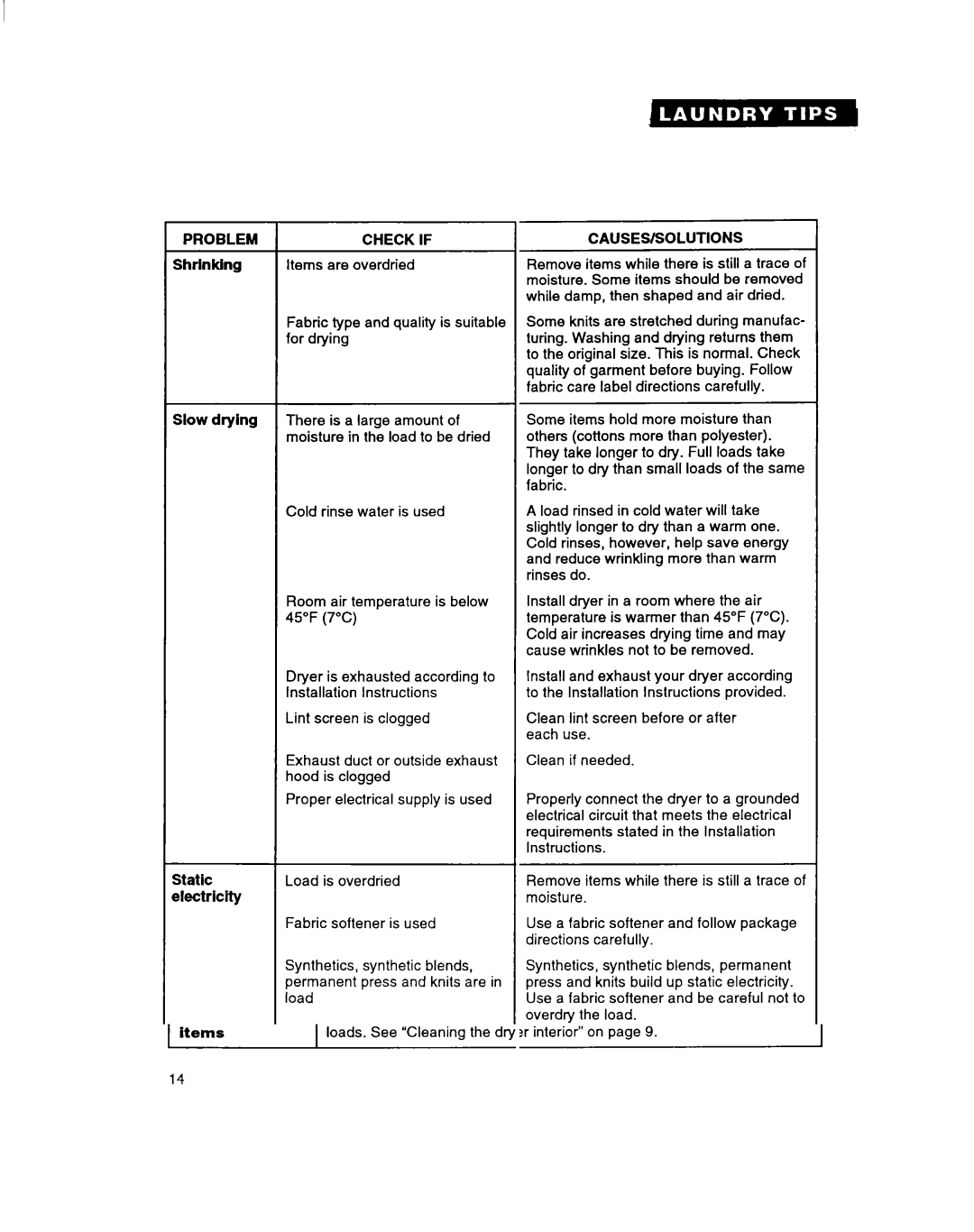
PROBLEM | CHECK IF |
Shrlnldng Items are overdried
Fabric type and quality is suitable for drying
Slow drying There is a large amount of moisture in the load to be dried
Cold rinse water is used
Room air temperature is below 45°F (7°C)
Dryer is exhausted according to
Installation Instructions
Lint screen is clogged
Exhaust duct or outside exhaust hood is clogged
Proper electrical supply is used
Static | Load | is overdried |
electricity |
|
|
| Fabric | softener is used |
Synthetics, synthetic blends, permanent press and knits are in load
CAUSES/SOLUTIONS
Remove items while there is still a trace of moisture. Some items should be removed while damp, then shaped and air dried.
Some knits are stretched during manufac- turing. Washing and drying returns them to the original size. This is normal. Check quality of garment before buying. Follow fabric care label directions carefully.
Some items hold more moisture than others (cottons more than polyester). They take longer to dry. Full loads take longer to dry than small loads of the same fabric.
A load rinsed in cold water will take slightly longer to dry than a warm one. Cold rinses, however, help save energy and reduce wrinkling more than warm rinses do.
Install dryer in a room where the air temperature is warmer than 45°F (7°C). Cold air increases drying time and may cause wrinkles not to be removed.
Install and exhaust your dryer according to the Installation Instructions provided.
Clean lint screen before or after each use.
Clean if needed.
Properly connect the dryer to a grounded electrical circuit that meets the electrical requirements stated in the Installation Instructions.
Remove items while there is still a trace of moisture.
Use a fabric softener and follow package directions carefully.
Synthetics, synthetic blends, permanent press and knits build up static electricity. Use a fabric softener and be careful not to overdry the load.
17
